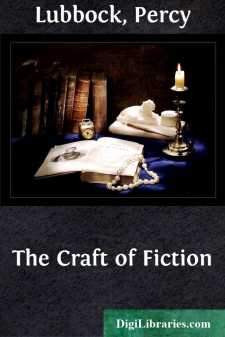Categories
- Antiques & Collectibles 13
- Architecture 36
- Art 48
- Bibles 22
- Biography & Autobiography 813
- Body, Mind & Spirit 142
- Business & Economics 28
- Children's Books 17
- Children's Fiction 14
- Computers 4
- Cooking 94
- Crafts & Hobbies 4
- Drama 346
- Education 46
- Family & Relationships 57
- Fiction 11829
- Games 19
- Gardening 17
- Health & Fitness 34
- History 1377
- House & Home 1
- Humor 147
- Juvenile Fiction 1873
- Juvenile Nonfiction 202
- Language Arts & Disciplines 88
- Law 16
- Literary Collections 686
- Literary Criticism 179
- Mathematics 13
- Medical 41
- Music 40
- Nature 179
- Non-Classifiable 1768
- Performing Arts 7
- Periodicals 1453
- Philosophy 64
- Photography 2
- Poetry 896
- Political Science 203
- Psychology 42
- Reference 154
- Religion 513
- Science 126
- Self-Help 84
- Social Science 81
- Sports & Recreation 34
- Study Aids 3
- Technology & Engineering 59
- Transportation 23
- Travel 463
- True Crime 29
Percy Lubbock
Percy Lubbock (1879–1965) was a British literary critic and writer, best known for his influential book "The Craft of Fiction" (1921). In this work, Lubbock analyzed narrative techniques in novels and offered a detailed discussion on the role of the author in shaping a reader's experience. His emphasis on point of view and the structure of narrative significantly influenced modern literary criticism. Lubbock was also a novelist and a member of the Bloomsbury Group, contributing to the intellectual discourse of his time.
Author's Books:
Sort by:
by:
Percy Lubbock
SIR THOMAS MALORY 15th century DEATH OF SIR GAWAINE And so, as Sir Mordred was at Dover with his host, there came King Arthur with a great navy of ships, galleys, and carracks. And there was Sir Mordred ready waiting upon his landing, to let his own father to land upon the land that he was king of. Then was there launching of great boats and small, and all were full of noble men of arms; and there was...
more...
by:
Percy Lubbock
THE CRAFT OF FICTION To grasp the shadowy and fantasmal form of a book, to hold it fast, to turn it over and survey it at leisure—that is the effort of a critic of books, and it is perpetually defeated. Nothing, no power, will keep a book steady and motionless before us, so that we may have time to examine its shape and design. As quickly as we read, it melts and shifts in the memory; even at the...
more...



